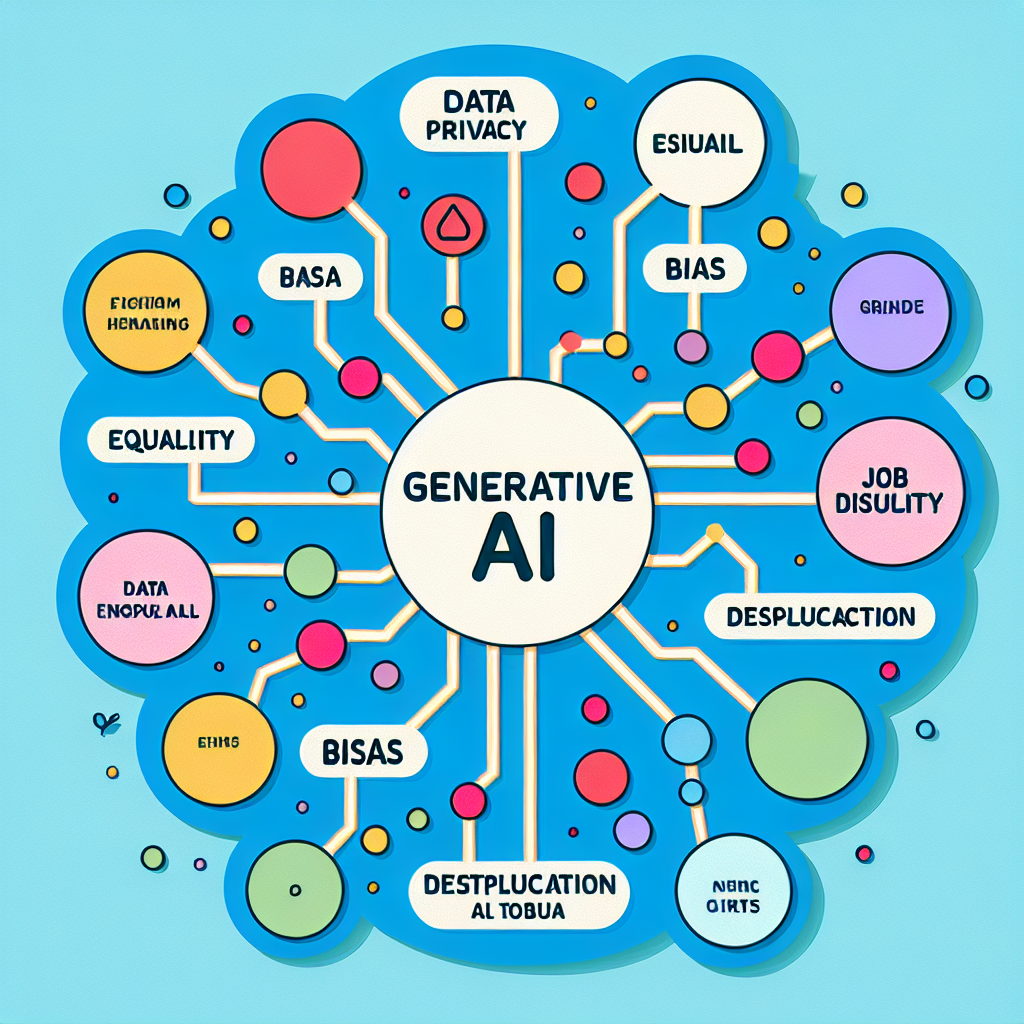Generative AI, also known as generative adversarial networks (GANs), is a type of artificial intelligence that can create new content, such as images, videos, or text, by learning from existing data. This technology has the potential to revolutionize many industries, from healthcare to entertainment, by automating the creative process and generating new ideas and solutions. However, the use of generative AI also raises a number of ethical implications that must be carefully considered.
One of the main ethical concerns surrounding generative AI is the potential for misuse and abuse. For example, the technology could be used to create fake news articles, videos, or images that are indistinguishable from real content. This could have serious consequences for society, as it could lead to the spread of misinformation and manipulation of public opinion. Additionally, generative AI could be used to create deepfake videos, which are realistic but fake videos of people saying or doing things they never actually did. This could have damaging effects on individuals’ reputations and privacy.
Another ethical concern is the potential impact of generative AI on the job market. As the technology becomes more advanced, it could automate the creation of content in industries such as journalism, graphic design, and music production, potentially displacing human workers. This could lead to job loss and economic inequality, as those with the skills to work with generative AI may have a competitive advantage over those who do not.
There are also concerns about the potential biases and prejudices that could be encoded in generative AI systems. If the training data used to teach the AI contains biases, such as racial or gender stereotypes, the AI could inadvertently perpetuate these biases in the content it generates. This could have harmful effects on marginalized communities and reinforce existing inequalities in society.
Furthermore, there are privacy concerns related to generative AI, as the technology could be used to create highly realistic simulations of individuals without their consent. For example, someone could use generative AI to create a fake video of a person engaging in illegal or inappropriate behavior, which could then be used to blackmail or defame them. This raises questions about who owns the rights to the content generated by AI and how it should be regulated to protect individuals’ privacy and dignity.
In order to address these ethical implications, researchers and developers working with generative AI must prioritize transparency, accountability, and fairness in their work. This includes carefully selecting and curating training data to minimize biases, implementing mechanisms for detecting and preventing misuse of the technology, and establishing clear guidelines for the ethical use of generative AI in different contexts.
Additionally, policymakers and regulators must be proactive in developing laws and regulations to govern the use of generative AI and protect individuals’ rights and freedoms. This could include requiring companies to disclose when content has been generated by AI, implementing safeguards to prevent the creation of deepfakes, and establishing standards for data privacy and security.
Ultimately, the ethical implications of generative AI are complex and multifaceted, requiring a thoughtful and interdisciplinary approach to address them. By engaging in open dialogue and collaboration with stakeholders from diverse backgrounds, we can ensure that generative AI is developed and deployed in a responsible and ethical manner that benefits society as a whole.
FAQs:
Q: What are some examples of generative AI applications?
A: Generative AI can be used in a wide range of applications, such as creating realistic images of non-existent people, generating music, writing stories or poems, and designing virtual environments for video games.
Q: How can generative AI be used for good?
A: Generative AI has the potential to revolutionize industries such as healthcare, art, and entertainment by automating creative processes, generating new ideas and solutions, and enhancing human creativity and productivity.
Q: What measures can be taken to prevent misuse of generative AI?
A: To prevent misuse of generative AI, developers should implement safeguards to detect and prevent the creation of fake content, establish clear guidelines for ethical use, and prioritize transparency and accountability in their work.
Q: How can generative AI help address societal challenges?
A: Generative AI can help address societal challenges by automating tasks that are time-consuming or labor-intensive, enabling faster and more efficient solutions to complex problems, and empowering individuals and organizations to innovate and create new opportunities for growth and development.

